The 10 Best Movies About How Power Corrupts People
By: Juan Orellana (Taste of Cinema - Movie Reviews and Classic Movie Lists)

The 10 Best Movies About How Power Corrupts People
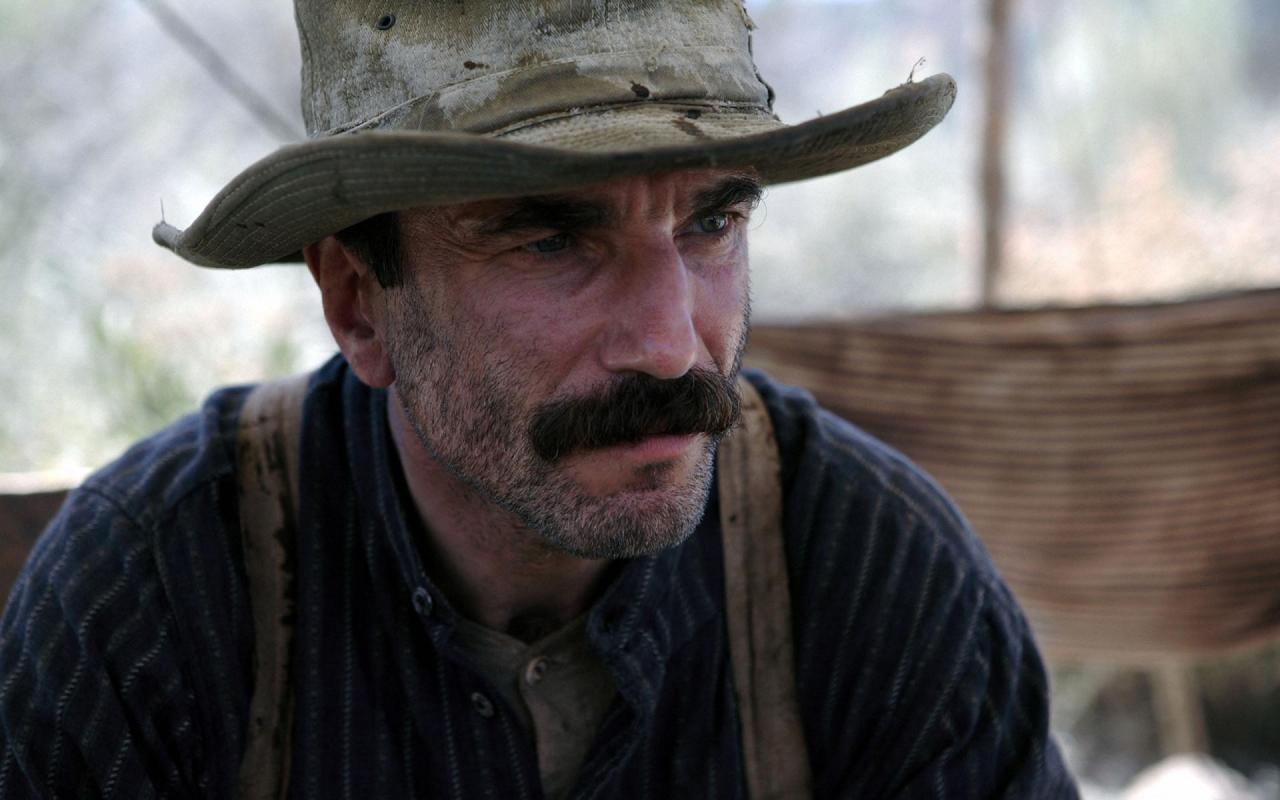
Humans are like lions; if they have the opportunity to seize power from somebody, they’ll take it, as “The Lion King” clearly depicts. Humanity’s desire to rule over others is so universal and anthropologically ancient that almost everybody can identify with it, from the monkeys in “2001: Space Odyssey” to the Third Reich in Nazi Germany. The struggle for power is an essential element in most human relationships, including the funniest subject to discuss at dinner tables, politics.
As a professor once told me, watching how an individual changes after acquiring authority, and then how they act when they lose said power, is incredibly entertaining to watch.
This is why we’ve put together a list about movies in which characters are seduced by the allures of power, right up until they become monsters and villains.
10. Wall Street

Setting up the outline for every movie taking place on Wall Street (or any movie about the economy in general) that “The Wolf of Wall Street” would later perfect, this film features Bud Fox (Charlie Sheen) as he tries to become a venture capitalist, or “evil itself”, as some call them.
For in doing so, he has to sell his soul to the metaphorical devil that is Gordon Gekko (Michael Douglas). In a very Faustian style, Gordon promises Bud a life of infinite pleasure, if only he chooses to get some illegal information that would help Gordon win a hell of a lot of money. The protagonist is reluctant at first, but Douglas’ character is a master at negotiating and manipulating, as Mephistopheles himself.
Sheen’s character starts off as an unhappy but morally responsible guy, who is naive enough to believe that malicious entrepreneurs like Gordon Gekko get to the top by choosing the honest way. He is also close with his father, who then he foolishly betrays and chooses to get some more illegal information to make amends.
From the start, Bud’s journey is centered on money, until he realizes that all the goods, girlfriends, and power he got were just that: money. He finally understands that real relationships, friends and family are not bought, but carefully and patiently built with time.
His veil is removed in time, but he still has to pay for his crimes. Although the movie does get a little preachy about director Oliver Stone’s hatred of capitalism, it’s certainly interesting to see Bud Fox’s transition.
9. Macbeth
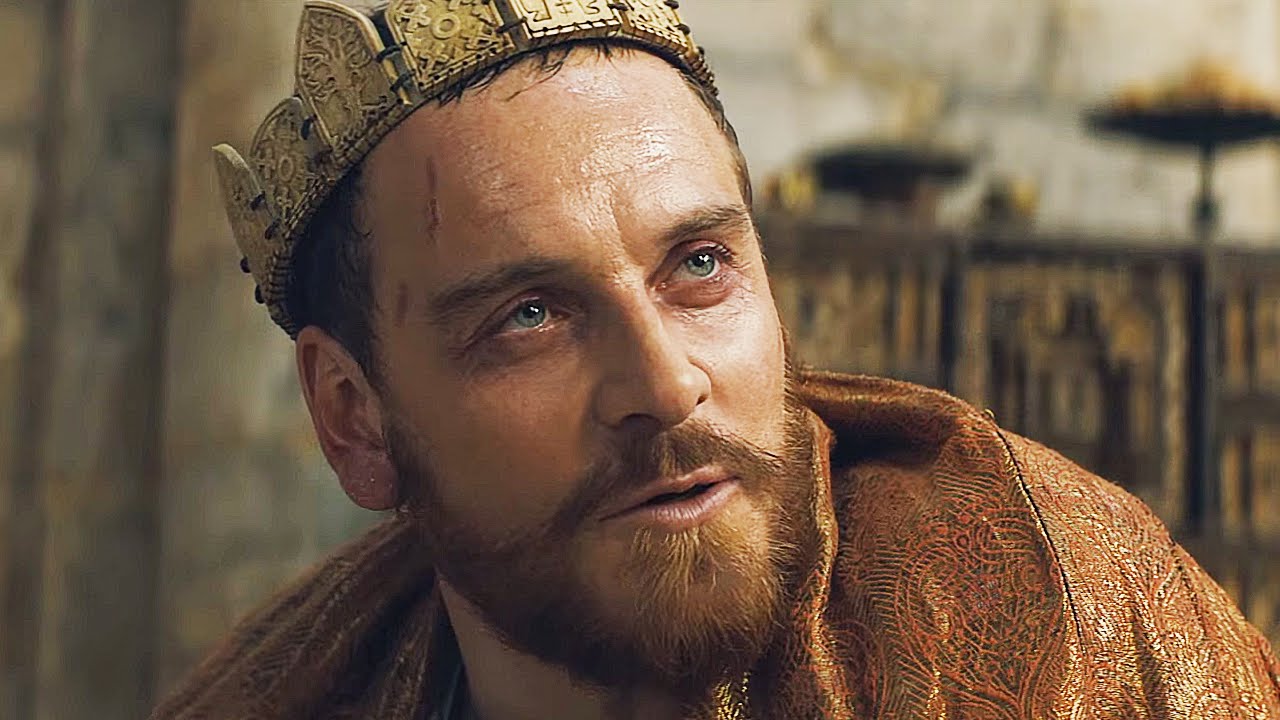
Macbeth was just your average kickass warrior, until he won an epic battle and got a prophecy from three future-watching ladies; they claimed he was the soon-to-be king. So, in his thirst for power, he murders the current ruler and finds no resistance in getting to the throne.
After claiming the former king was cruel and unjust and that his ruling was meant to be, Macbeth becomes a total maniac, swallowed by a pit of guilt and shame. He tries to assassinate anybody who is under the slight suspicion of betraying him, children included.
Michael Fassbender’s character slowly descends into madness under the baffled look of his wife, who didn’t knew that his new sweet position would rot his soul.
The actor is great in portraying the decadence of Macbeth. His evil smile contrasts with his mighty fighting skills depicted in the visually stunning battles. Cinematographer Adam Arkapaw is certainly a master in his craft.
8. The Last King of Scotland
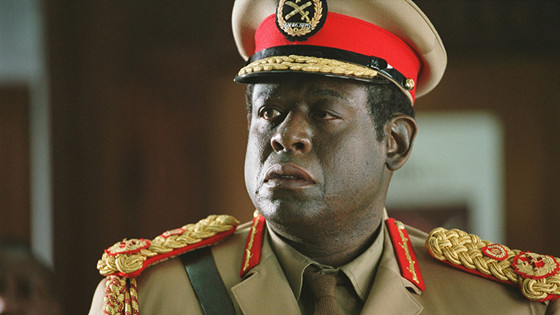
There’s an interesting disjunctive that I can’t quite get my head around: how many dictators have good intentions before obtaining power, and get corrupted when they are finally able to improve their countries? How many are fueled by their greed and personal gain from the start?
I think it’s impossible to know for certain in most cases. However, according to what I’ve gathered from this film and a few websites, Ugandan dictator Idi Amin can be classified in the first category, meaning that he actually wanted to get his country out of its misery, but when he realized the amount of power and freedom he possessed, he preferred to take good care of his family, and completely forget about the hell that millions of Ugandans were enduring.
Forest Whitaker does a great job at portraying the insane maniac Idi Amin became. His easygoing nature evaporated bit by bit, and the dictator turned into a complete maniac whose only concern was to eliminate his enemies. His paranoia grew to such an extent that he ended up causing the death of up to 300,000 Ugandans.
The movie doesn’t try to be historically accurate; instead, the director takes us through an interesting character study. Analyzing the mentality of the Ugandan ruler is a great way to understand the dictatorship phenomena.
As the film portrays, a dictator’s deepest fear is losing his absolute power. This makes them capable of doing horrible things in order to warrant their political control. The main character in “The Last King of Scotland” no longer considers other Ugandans as equals, which makes it easier for him to have whole communities murdered or exiled on a paranoid whim.
7. City of God
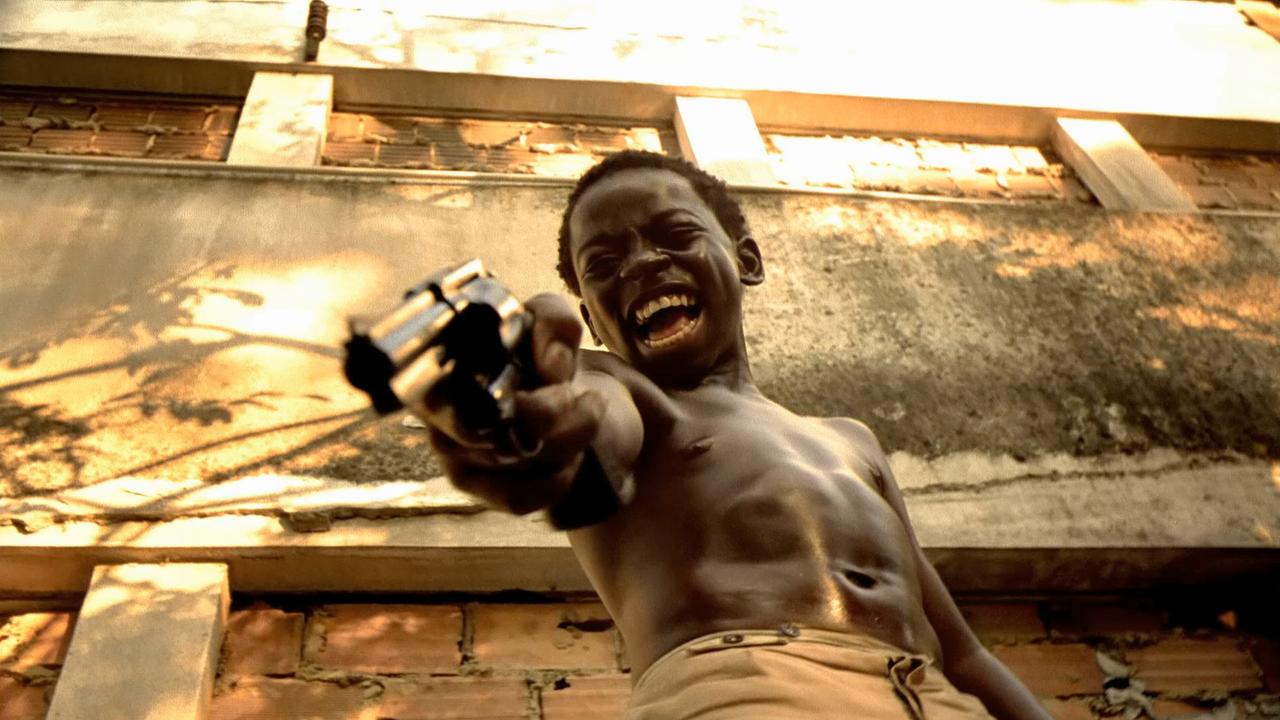
This film contains multiple storylines, as the director tries to paint a broad and complex picture of the messy and dangerous lives the inhabitants of “City of God” (an immensely violent real life favela) endure. The main one, however, is about a boy named Dadinho. He inhabits a very poor and tough community, and the only role models he knows are teenaged criminals.
Dadinho seems like a normal child of his age, until he’s given a gun. At the beginning of the movie, he’s treated badly by older boys; they all consider him just a silly kid, which he doesn’t like at all. When he holds his first pistol, Dadinho realizes that he can be as dangerous and scary as anyone, as long as he has a gun between his fingers. The kid soon starts murdering others for money, recognition and fun, always accompanied by his best friend, Bené.
As time passes, Dadinho murders people like it’s his job. Naturally, it only takes him a few years to become the most respected and feared criminal in “City of God”. A shaman gives him an amulet for luck and changes his name to Zé Pequeno.
Zé Pequeno gets addicted to a quite common kind of power, the one a loaded gun provides. The only thing he knows how to do is murder people. He hides all of his frustrations and insecurities behind this ability; although, from time to time, the awful monster he has become is left uncovered, which turns out to be fatal to his fellow criminals and enemies.
Tragedy is everywhere in “City of God”. Its gritty tone and cinematography, and the unusual acting and casting methods used by the filmmakers, provide it with a unique charm that makes the movie a great watch.
6. The Last Emperor
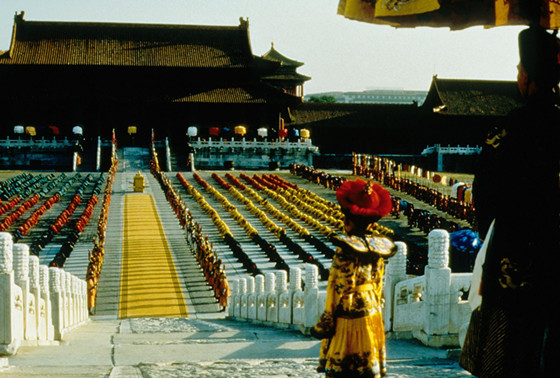
This visual jewel by Bernardo Bertolucci is a great example of how unlimited power and a reclusive life can shape an individual’s personality.
It tells the story of Pu Yi, a small child who is treated as a god from a very early age, as he is the former emperor’s heir. He lives in the Forbidden City with hundreds of servers who comply to his every whim. However, he has to follow a series of strict traditional procedures in his daily life and isn’t allowed to go outside, nor behave like a normal child, due to ancient imperial etiquette. Pu Yi is estranged from his family, which makes him very lonely.
In a strange paradox, Pu Yi is worshipped by everyone he meets, but doesn’t really possess any say in the political matters of China. These were times of revolution; the Chinese no longer wanted to be ruled by an emperor, so they created a republic and kept Pu Yi’s special treatment as tradition.
However, he’s kicked out of the Forbidden City soon after. Pu Yi is still rich so he lives in luxury, but he realizes that life is miserable without special divine treatment. He allies with the Japanese, who name him emperor of a new country that they control. Again, he doesn’t possess any political power.
The illusion of power is the recurring theme of the film. Pu Yi is eager for any kind of control and privilege; he’s incapable of living a normal life, he treats everyone like mere servers, and is very arrogant. This delusion corrupts him as he betrays his country in order to grasp any minuscule position he can get. Ironically, he lives as a puppet for somebody else his whole life.
The cinematography in “The Last Emperor” is a solid 10 out of 10. Cinematographer Vittorio Storaro is a master in using light for emphasizing a line of dialogue or a gesture. Every scene seems magical as the environment reacts and represents what the characters are experiencing. His management of color is amazing as he plays with different textures and tones for constructing beautiful images.
5. A Prophet
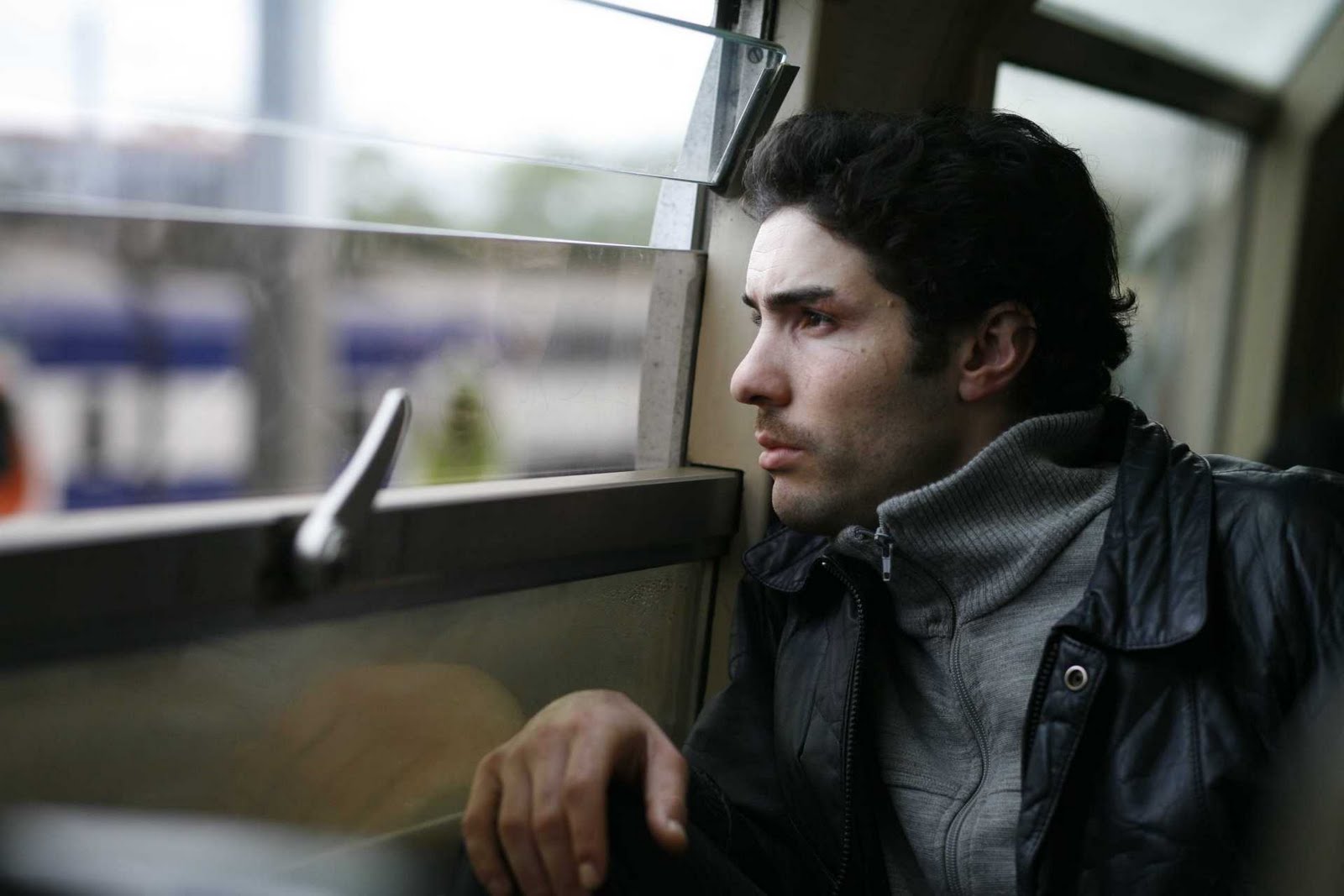
Unlike the other characters on this list, the protagonist of this movie doesn't want power, but is forced to acquire it as a means of survival.
Malik is a young man who's serving six years in a French prison, for presumably attacking a cop with a knife. He's rather passive and shy, not the personality one would expect in a juvenile criminal.
He's is trying to figure out how to survive until he meets Cesar, the prison's kingpin, who commands him to kill another prisoner who's about to testify in a big trial. From that point, the protagonist understands that in order to stay alive in hell, he'll need to get connections and a few friends in and out of the prison. As Malik becomes more powerful, he also gets more violent and, of course, richer.
The contrast is clear between the insecure innocent Malik in the beginning of the film, and the ruthless leader assassin at the end of the movie. The transition between the two is natural and believable. The first act of "A Prophet" is the more intense one; the way that Malik's journey is set up is both frightening and crude, as he's forced to lose all sense of morality.
The cinematography is bleak and realistic; it powers the film's level of intensity by portraying the story through a very clean and simple aesthetic. That way, the events depicted are more rough and brutal, two words that describe the film's tone perfectly.
4. There Will Be Blood
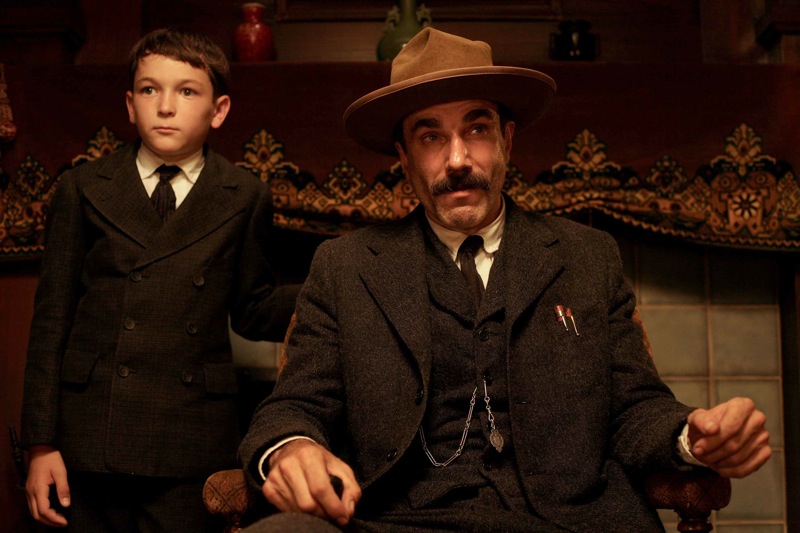
Paul Thomas Anderson's masterpiece is all about greed for the power that money provides. Daniel Plainview pursues this goal by looking for oil wells and drilling the hell out of them.
He starts mining for minerals in small individual enterprises. Little by little, Plainview founds a drilling business with a few men; then, he's able to begin a serious oil company. Until that point, Plainview remains a decent man who seems to love his adopted son, H.W.
After finding a widely profitable oil well, Plainview gets consumed by the stress of running a business of that magnitude. He seems to struggle but is able to cope, right up until his son goes deaf after a drilling accident. Plainview gives more importance to his current work, so he sends H.W. away.
Plainview gets paranoid. He doesn't trust anyone, and he thinks everybody wants to interfere with his endeavors. As he says himself, "There are times when I… I look at people and I see nothing worth liking. I want to earn enough money so I can get away from everyone."
After he becomes a huge oil tycoon, Plainview sees an enemy in everybody. His never-ending quest for money dehumanizes him. Plainview becomes isolated from the world, which makes it easier for him to commit outrageous crimes; he doesn't consider his victims and adversaries as equals. The protagonist sees himself above everyone and everything.
3. The Wolf of Wall Street
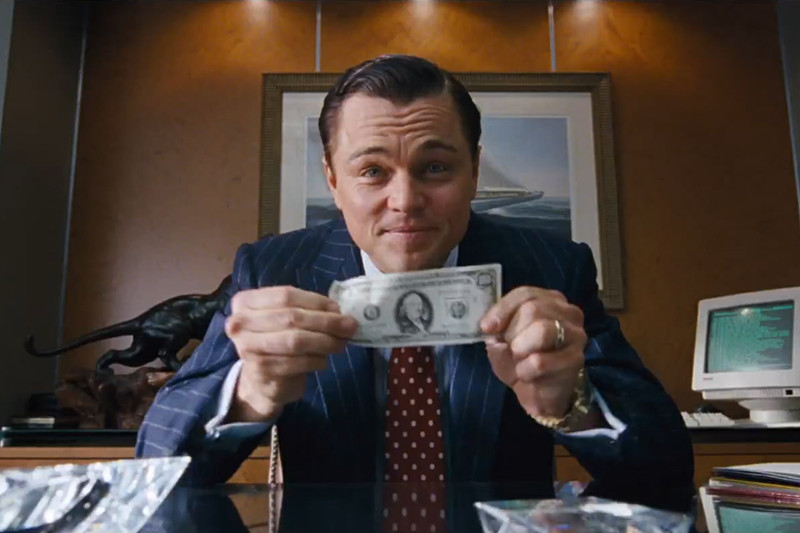
Before being attacked by a bear, Leonardo DiCaprio had high hopes of becoming rich by learning the craft of stockbroking. He used his silver tongue to achieve said goal, and things went uphill after he started his own company, until they didn't.
After becoming insanely rich, it didn't took long for him to abandon his wife for a new squeeze, but who could blame him for choosing Margot Robbie over every other woman? However, he gained a fortune by conning his clients and committing other various schemes and felonies.
At first, he wants to get to the top honestly, but after having a chat with his first boss (a brilliant cameo from Matthew McConaughey), Leo's character realizes that the only way of surviving in that treacherous world is by cheating and getting high.
He is corrupted completely by his extreme greed. His thirst for luxury is never satiated as he loses all sense of morality, and he also becomes extremely individualistic. The movie is smart at showing his two children for as long as he cared for them, meaning almost not at all.
The film is excellent because it displays every step on his way to power, and then his decline and imprisonment. The protagonist is fully fleshed out as we see him evolve through all these stages.
2. Downfall
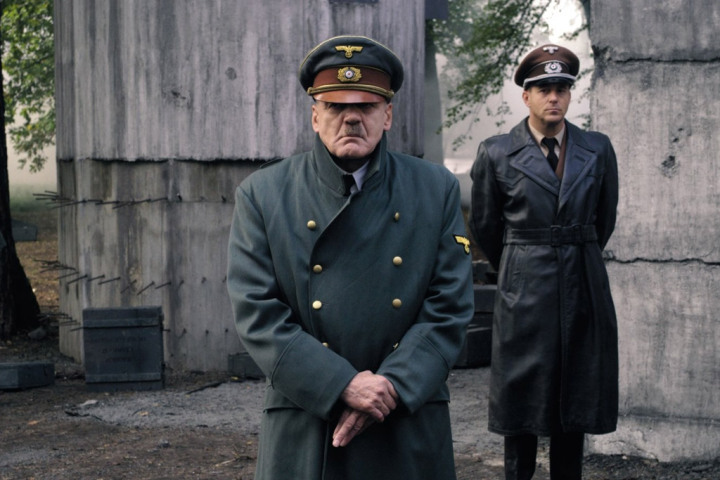
As the most well-known member of the "20th Century Crazy Bitches Club" (along with Joseph Stalin and Mao Zedong), Adolf Hitler lived his final days in Berlin before being killed by Adolf Hitler.
The movie depicts a delusional Uncle Adolf, quite different from the fearless military leader most people think he was. His squad cornered in the Berlin bunker are divided in two groups: the fanatic idiots who love the Fuhrer, and the guys who think he's crazy but are forced to praise him due to peer pressure.
Hitler was estranged from reality, making wild assumptions, giving nonsensical orders, and throwing several tantrums throughout the day. He created an environment in which he was loved and unquestioned by everyone. He believed he was invincible, to the point where he couldn't actually understand that his side was losing the war. Thus, his behavior was erratic and melancholic.
The film also shows us how other Nazis couldn't bear the fact that the Soviets were brutally defeating them. In a great scene, we see a group of the few remaining members of the Nazi secret police executing alleged "traitors" (more like random people they found), just when the communists were flanking Berlin. These men preferred to enjoy their last moments as a totalitarian authority instead of helping to win the battle.
"Downfall" is outstanding as it depicts the real clueless Hitler, instead of the cliched mastermind we're accustomed to seeing. The fact that Bruno Ganz didn't win all the awards for his incredible performance is outrageous. Although we must admit that giving an Oscar to a guy for playing Hitler would be like losing World War II altogether.
1. The Godfather Trilogy
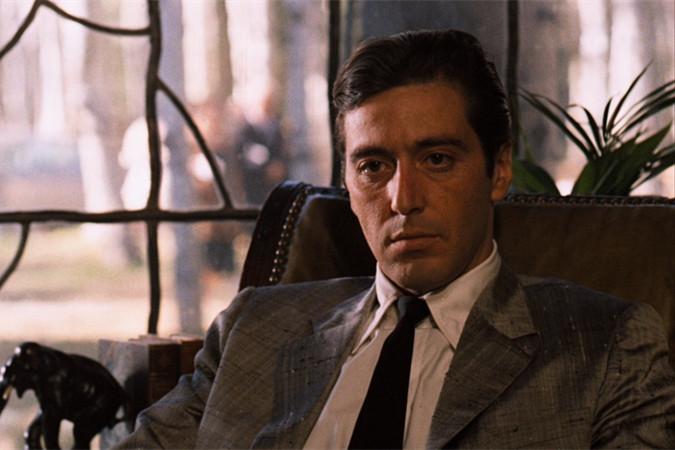
Michael Corleone's rise and fall was amazingly depicted throughout this franchise. Although the third one should make Francis Ford Coppola cry out of shame, the first two are considered unforgettable masterpieces.
These three films represent one of the best character studies of all time. We can see how Michael's spirit is corrupted by the pressure of keeping his family's legacy alive.
He takes life-threatening risks, loses family members, and is betrayed by his own people. After his brother's death, Michael becomes a full kingpin, assassinates a bunch of mobsters, and is even capable of killing his own traitorous brother.
In the third film, he tries to hold onto power with everything he's got, putting his family at risk again, and getting his beloved daughter killed. Finally, he dies alone and miserable in Italy.
Al Pacino's performance makes this transition look real. His character starts off as an average soldier, and slowly he gets pushed by inconvenient events into a merciless murderer with no moral compass. Every gesture Pacino makes builds tension that is released every time he avenges somebody or eliminates a family enemy.
So, in conclusion, I'll say that having too much power is like eating a whole pizza on a crowded subway train. You may enjoy it at first, but the situation becomes annoying when everybody passionately craves a slice.
Author Bio: Juan studies philosophy. He love films and music and plans to go to film school with his cat.
Discussion of politics and/or religion will be limited to the plots and themes of the movies or TV movies and series themselves and any religious comments or proselytizing or commentary concerning current politics not in reference to the movies or TV movies and series themselves will be deleted along with all CoC and ToS violations. As well, anything posted that the administer of this group deems to be offensive, off topic or of no value will be deleted. Videos and images that the administrator cannot open must be described in text or they will be deleted. Instagrams are not permitted.


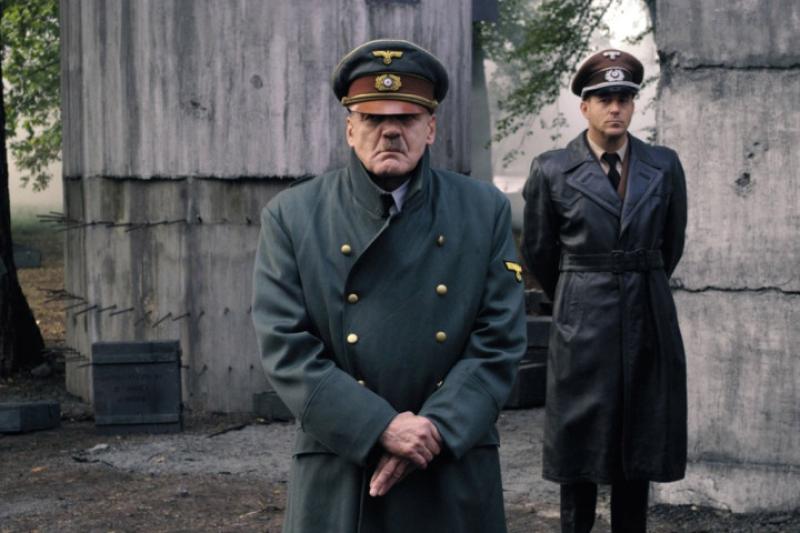







It should be pretty obvious to everyone why I chose to post this. I have no doubt that down the road at least one movie will be made about today's prime example.
Your number 4 is my number 1. BTW That movie also happens to prove that greed benefits the public in the end.
Well then, do you agree with what Gordon Gekko is purported to have said: "Greed is good"?
Long before Gekko there was a great economist who called it "The hidden hand of self-interest." From it flows investment, economic growth and jobs.
So is it your favourite of the Seven Sins?
Still infatuated with Ayn Rand I see.
No doubt that hero of Libertarianism is a shining light to some. Relating it to movies, I believe The Fountainhead was based on Frank Lloyd Wrignt who I consider to be my favrourite architect of all time.
Not a movie, I realize, but Game of Thrones is 8 seasons worth of lessons on power and corruption.
I have never seen an episode of Game of Thrones, but I'll take your word for it that it fits the theme.